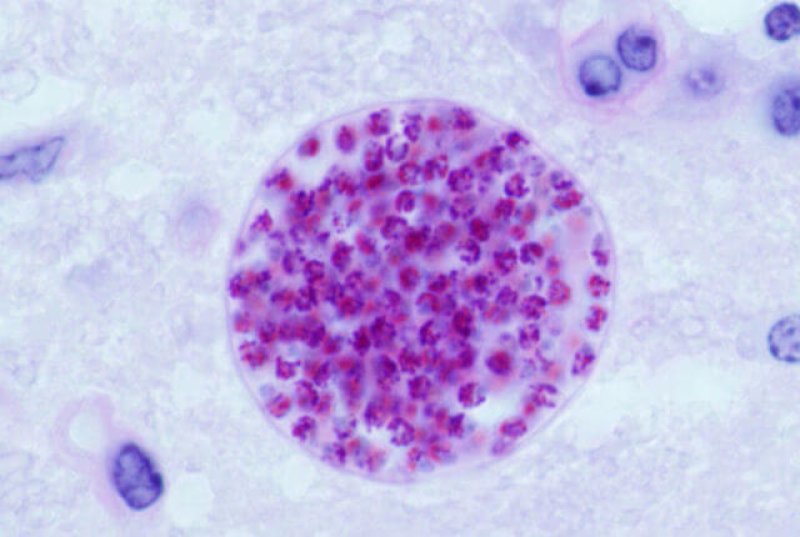Toxoplasma gondii, a.k.a. the reason pregnant women are often advised not to change the cat box, is a parasitic infection carried by cats and spread, most often, by mice and rats who pick up eggs in contaminated soil. Although something of an innocent bystander, humans can also become infected with flu-like symptoms via our domesticated cats.
To further incentivize its transfer, a new study has shown that Toxo can make the rodents less afraid of cats through changing the gene expression by altering the chemical caps on genes that turn them on or off. These caps are, at least in part, responsible for making a hair cell different than a blood cell even though both contain identical genetic material, all the genes in the body. And they’re different in infected and non-infects rats Carl Zimmer reports:
First neurobiologist Ajai Vyas and his team looked at the gene for arginine vasopressin in the medial amygdala of rats. In infected rats, they found, many of the molecular caps were missing, suggesting that Toxoplasma had “unsilenced” the gene in order to increase production of the neurotransmitter. The arginine vasopressin then might alter their response to cats…
Vaya and his colleagues removed molecular caps from the arginine vasopressin gene, mimicking what Toxoplasma might be doing to its hosts. The rats became reckless, feeling no fear at the whiff of cats.
“The animals looked like they were infected, even though there was no parasite around,” said Dr. Vyas.
Although the results are preliminary, they do beg the question: Could the Toxo parasite also be controlling our genes? Czech evolutionary biologist Jaroslav Fleger thinks so:
If Flegr is right, the “latent” parasite may be quietly tweaking the connections between our neurons, changing our response to frightening situations, our trust in others, how outgoing we are, and even our preference for certain scents. And that’s not all. He also believes that the organism contributes to car crashes, suicides, and mental disorders such as schizophrenia.
Fleger came to this conclusion, first, because of changes he noticed rapidly in his own fear-avoidance behavior. He crossed busy roads and snubbed his nose at the communist party, Kathleen McAuliffe reports in the Atlantic. He began testing students and military members for other cognitive and emotional changes. Surprisingly all the infected participants showed delayed reaction times, subtle personality trends and were increasingly likely to have been in car accidents.
Other parasites are known to change the behavior of their hosts. Rabies, for instance, makes dogs extremely aggressive and copious salivates, ensuring any bite would transfer the infection. And the insect world is riddled with examples, like this parasitic wasp taking over a caterpillar from National Geographic.
As measuring genetic expression changes during infection becomes cheaper and more widely available, it will be interesting to see all the ways in which infection can alter our behavioral through our genes. And, this might not be limited to parasites. Bacteria and viruses could act on our genetic control systems to make us more likely to spread them, just like Toxo and the rats.
Meredith Knight is a blogger for Genetic Literacy Project and a freelance science and health writer in Austin, Texas. Follow her @meremereknight.
Additional Resources:
- Toxoplasma’s dark side: The link between parasite and suicide, Scientific American
- Can we inherit fear of a smell? The latest on transgenerational epigenetics, Genetic Literacy Project































